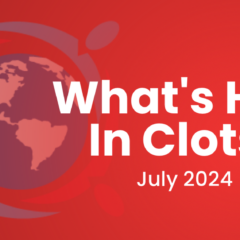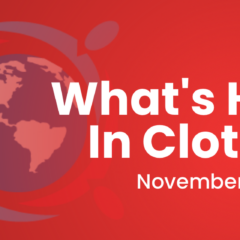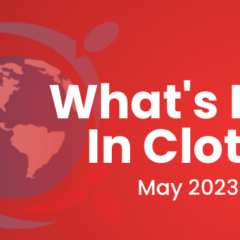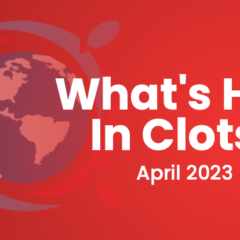Published on
Clot Chronicles: Long-term Cardiovascular Outcomes of COVID
Hi, everyone. My name is Ziyad Al-Aly. I’m the chief of research and development at the VA St. Louis Health Care System, and I also direct the clinical epidemiology center at the VA St. Louis Health Care System. Welcome to Clot Chronicles. Today I’m going to discuss our paper that was published in Nature Medicine recently on the long-term cardiovascular (CV) outcomes of COVID-19.
So what did we do in this paper? We wanted to look at the long-term CV manifestations in people who got COVID-19. So, we assembled a cohort—about 150,000 people with COVID-19—and compared them to two control groups: one control group with about 5.5 million people who did not have COVID-19 but lived during the same time period as those who got COVID-19, and another control group of also about 5.5 million people who lived in an era that preceded the COVID-19 pandemic, so not affected by anything related to the pandemic at all. Then we ran analyses observing these patients for a period of one year.
So, what did we find? We found that compared to the control groups, people with COVID-19 had an increased risk of a variety of CV problems. Those included strokes, TIAs, atrial fibrillation, sinus tachycardia, sinus bradycardia, ventricular arrhythmias, and atrial flutter. We also observed increased risk of inflammatory heart disease, including pericarditis and myocarditis. There was quite a substantially increased risk of ischemic heart disease, including acute coronary disease, myocardial infarction, and ischemic cardiomyopathy. We also observed increased risk of heart failure. Most importantly for the group, there was a significantly increased risk of thromboembolic disease, including pulmonary embolism and deep vein thrombosis. It is also very important to note that the risk was evident even in people whose COVID-19 disease was mild, or in some cases asymptomatic.
Even when you followed these people over time, over a span of a year, they still had an increased risk of a range of CV problems. And why this is really important? It’s really important because this group represents the majority of people with COVID-19. Most people with COVID-19, in the US and in the world, don’t need to be hospitalized for it. They have mild or asymptomatic disease, but the risk of CV problems was evident even in this low-risk group.
And then we asked ourselves about the risk of CV problems concentrated in people who had a prior medical history of heart problems or had previous risk factors, including hypertension, diabetes, chronic kidney disease, smoking, or other risk factors. We did what we call subgroup analyses to analyze the risk for each of those risk factors. We found that it didn’t really matter if you were young or old, it didn’t matter if you were a female or male, it didn’t matter if you were Black or White, it didn’t matter if you had obesity or did not have obesity, if you had smoking and did not smoke, if you had high blood pressure or not, diabetes or not, chronic kidney disease or not, hyperlipidemia or not, or prior CV disease or not. It didn’t matter if you were in any of these subgroups. COVID-19 was associated, in all of these subgroups, with an increased risk of all these CV problems, again including cerebrovascular disorders, dysrhythmias, inflammatory heart disease, ischemic heart disease, and thromboembolic disease.
This finding really told us that the CV risk associated with COVID didn’t spare anybody. It was an equal opportunity offender. Again, it didn’t matter if you had high blood pressure or didn’t matter if you had diabetes or didn’t. Even in people who had no CV risk factors whatsoever before they got COVID-19, were at elevated risk of developing these CV problems after a COVID diagnosis.
So, in summary, what we really feel here is that COVID-19 should be interpreted as a risk factor for CV problems. People who had COVID-19 should be treated with that lens, with that idea in mind that COVID-19 puts them at a higher risk of CV disease, and they should be treated accordingly.
Thank you again for hosting me and I’m delighted to have done this with you guys.



